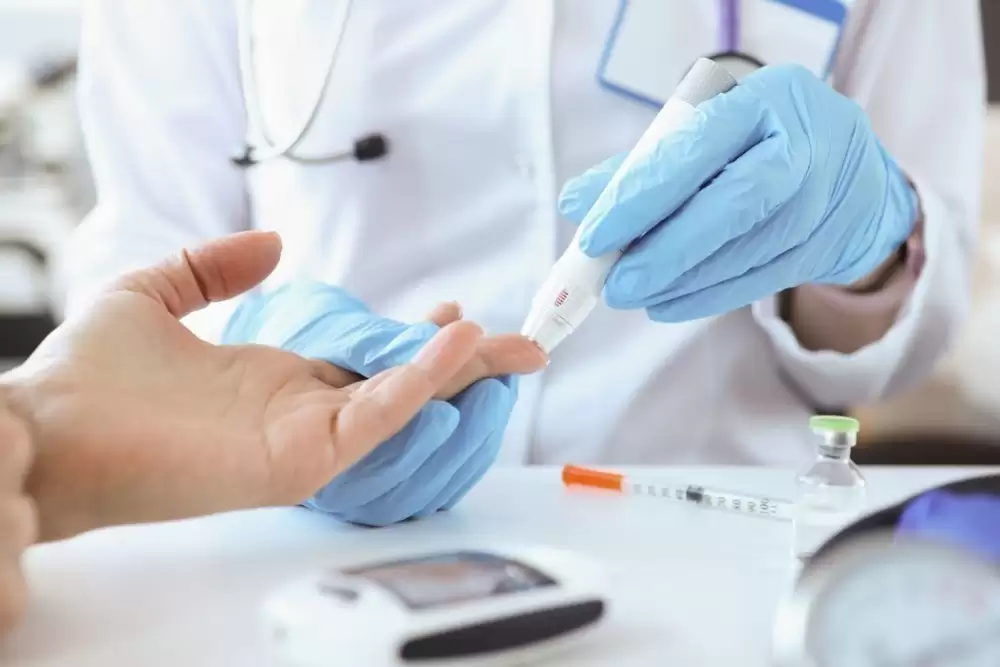Best Endocrinologist in Austin: Premier Hormone Health Care in the Capital
Wiki Article
The Scientific Research Behind Hormonal Agent Law: Insights From an Endocrinologist
The Scientific Research Behind Hormonal Agent Policy: Insights From an Endocrinologist offers a detailed exploration of the elaborate procedures included in hormone policy. Whether you are a clinical specialist seeking a deeper understanding of endocrine feature or a specific interested in discovering regarding the science behind hormonal agent policy, this publication is an important source.Hormones and Their Features
Hormones play important functions in the law and coordination of different physical procedures within the body. These chemical carriers are produced by endocrine glands and are launched right into the bloodstream, where they travel to target cells or body organs to apply their results. The features of hormones are varied and incorporate almost every facet of human physiology.One of the key features of hormones is to maintain homeostasis, which is the stable inner environment required for the body to function optimally. Insulin, a hormone created by the pancreas, regulates blood sugar levels by advertising the uptake and storage space of glucose in cells. An additional hormonal agent, cortisol, assists the body reply to tension by boosting blood glucose levels and reducing the immune system.
Hormones additionally play vital duties in growth and growth. Growth hormone, generated by the pituitary gland, stimulates the development of bones and cells, while thyroid hormonal agents manage metabolism and influence the development of the nerve system - endocrinologist in liberty hill. In addition, reproductive hormones, such as estrogen and testosterone, are liable for the advancement and upkeep of additional sex-related characteristics and the regulation of the menstrual cycle
The Endocrine System: A Summary
Playing an important function in the policy and control of physical procedures, the endocrine system is a complex network of glands that create and launch hormones right into the bloodstream. These glands, including the hypothalamus, pituitary gland, thyroid gland, adrenal glands, pancreatic, ovaries, and testes, produce hormonal agents that work as chemical carriers, affecting various physical features. The endocrine system works in conjunction with the worried system to keep and regulate homeostasis, ensuring that the body's internal environment continues to be stable.It creates hormones that inhibit the release or boost of hormones from the pituitary gland, which in turn controls the activity of various other endocrine glands. The thyroid gland, situated in the neck, creates hormones that regulate metabolic rate and energy balance.

Policy of Hormonal Agent Manufacturing
The policy of hormone production includes an intricate interplay between numerous glands and comments devices within the endocrine system. Hormones are chemical carriers that play a vital function in preserving homeostasis and collaborating numerous physiological processes in the body. The production of hormones is tightly controlled to make sure the proper functioning of the endocrine system.The hypothalamus, located in the mind, functions as an essential regulator of hormone production. It releases hormones that stimulate or hinder the manufacturing of hormones by the pituitary gland, which is usually referred to as the "master gland" of the endocrine system. The pituitary gland, in turn, produces hormonal agents that act on different target glands throughout the body, boosting them to generate and release certain hormonal agents.
Responses mechanisms also play a vital function in hormonal agent guideline. When hormone degrees increase above or drop below the optimum range, the body activates mechanisms to either decrease or boost hormone production, respectively, to bring back balance.
Responses Loops in Hormone Guideline
Responses loops play a crucial function in the regulation of hormone production. These loopholes include a series of interactions in between the endocrine glands, hormones, and target organs to keep homeostasis in the body. There are 2 kinds of responses loopholes: adverse responses and positive responses.Unfavorable responses is the most usual kind of feedback loophole in hormone policy. It functions by noticing the degrees of a hormone in the blood and adjusting hormone manufacturing as necessary. When hormone levels climb above a specific threshold, the hypothalamus in the brain signifies the pituitary gland to reduce hormone production. This, in turn, reduces the excitement of the target body organ, resulting in a reduction in hormonal agent secretion. Alternatively, when hormone levels go down below the threshold, the hypothalamus boosts the pituitary gland to boost hormonal agent manufacturing, bring back equilibrium.
Favorable responses loopholes, on the other hand, intensify hormonal agent manufacturing. This happens when a hormone boosts the release of even more of the same hormone, resulting in a quick increase in its degrees. Favorable comments loopholes are much less typical in hormonal agent policy and are usually involved in particular physiological processes, such as giving birth and lactation.
Aspects Affecting Hormone Equilibrium
Factors affecting hormone balance consist of nutritional selections, lifestyle habits, and environmental direct exposures. These factors can have a significant influence on the fragile balance of hormonal agents in the body, influencing various physical procedures and general health.Nutritional options play a crucial role in hormone guideline. Eating a balanced diet that consists of a selection of nutrients is crucial for keeping hormonal agent equilibrium.
Lifestyle habits, such as workout, sleep patterns, and stress and anxiety management, likewise influence hormone equilibrium. Routine exercise aids manage hormonal agent levels, advertises total wellness, and lowers the danger of hormone disorders. Appropriate sleep is crucial for hormonal agent manufacturing and policy, as disrupted sleep patterns can result in imbalances. Furthermore, chronic anxiety can dysregulate the hypothalamic-pituitary-adrenal (HPA) axis, a vital gamer in hormonal agent guideline, resulting in a cascade of hormonal imbalances.

Conclusion
In conclusion, comprehending the scientific research behind hormonal agent law is necessary for preserving total health and well-being. Hormonal agents play essential roles in different bodily functions, and their production is controlled by complicated comments loopholes. Variables such as stress and anxiety, diet regimen, and way of life selections can affect hormone equilibrium. By researching and comprehending these mechanisms, we can much better comprehend and manage hormone-related problems, inevitably causing boosted health and wellness outcomes.The Scientific Research Behind Hormone Law: Insights From an Endocrinologist offers a thorough expedition of the detailed procedures entailed in hormonal agent law. It produces hormones that inhibit the launch or promote of hormonal agents from the pituitary gland, which in turn manages the task of other endocrine glands. It launches hormones that stimulate or prevent the manufacturing of hormonal go to my site agents by the pituitary gland, which is frequently referred to as the "master gland" of the endocrine system. The pituitary gland, in turn, produces hormones that act on various target glands throughout the body, boosting them to generate and launch specific hormones.
visit our website When hormone levels increase above a specific threshold, the hypothalamus in the brain signifies the pituitary gland to decrease hormone manufacturing. (Endocrinologist in georgetown)
Report this wiki page